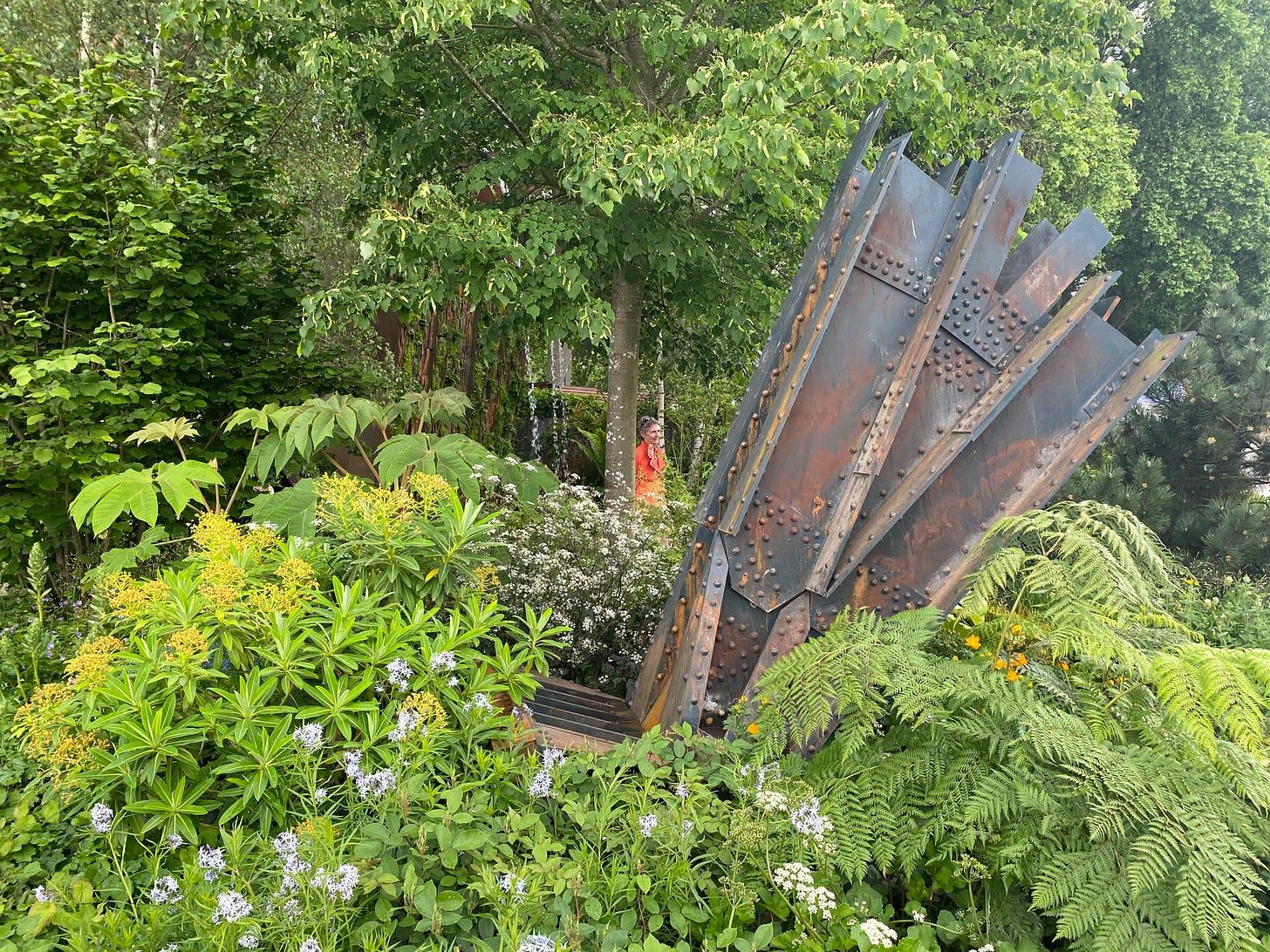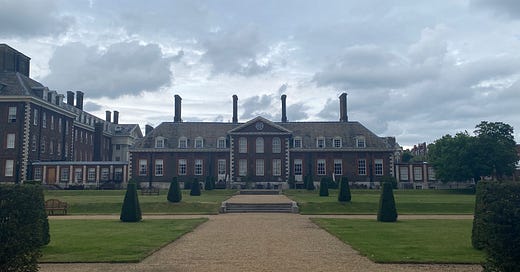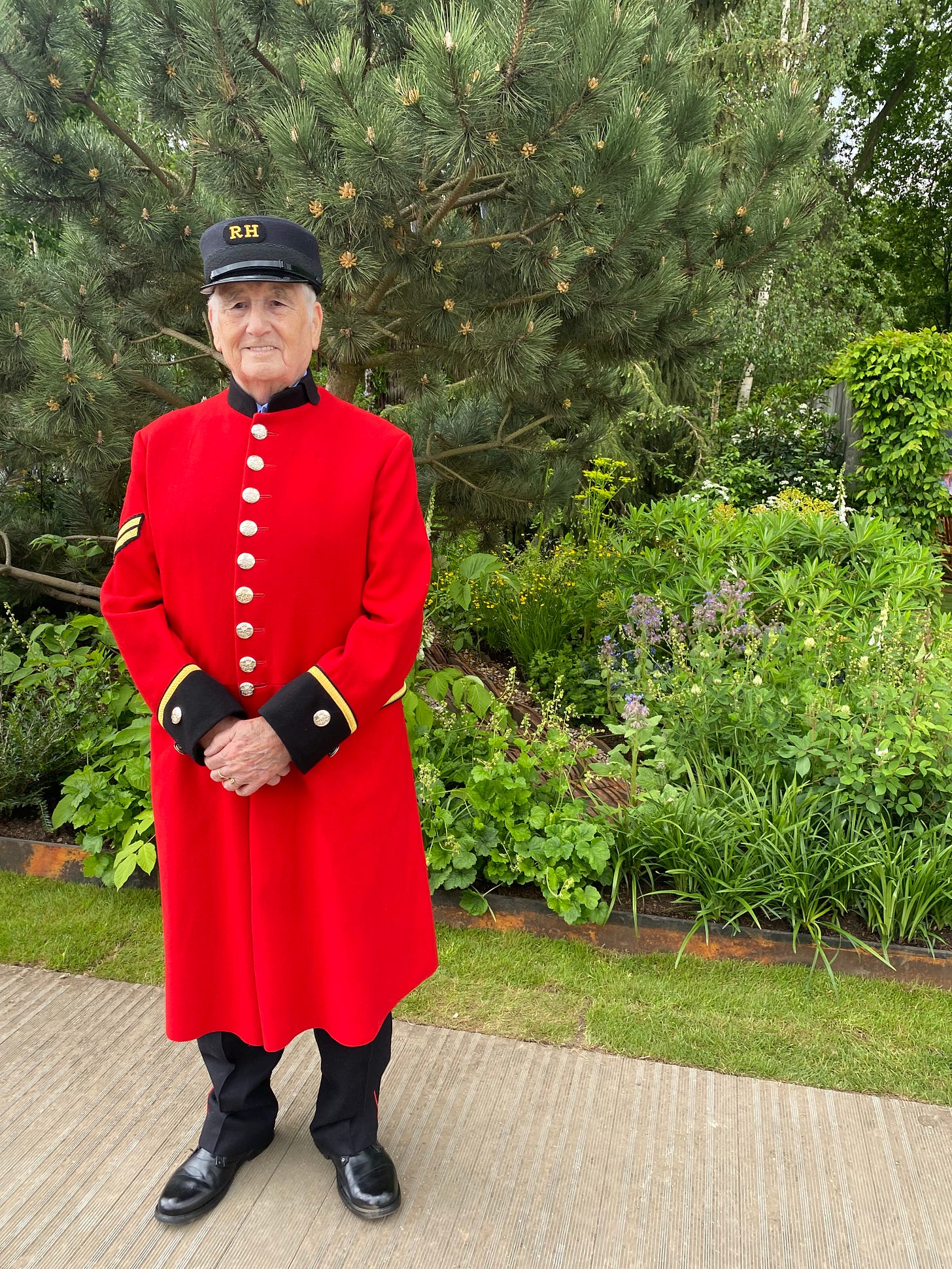Chelsea Flower Show special: Day 3
What do the Chelsea Pensioners make of the horticulture hordes gallivanting around their back yard?
For visitors to the flower show, the Chelsea showground represents a fun day out. For Peter Birch, it is home.
In 1681, King Charles II felt moved to offer a place of respite and rehabilitation to those soldiers “broken by age or war”. And so it was that architect Sir Christopher Wren (of St Paul’s Cathedral fame) was commissioned to design the Royal Hospital Chelsea.
Today, the hospital acts as a home and nursing home to 300 residents, all former members of the British Army, and all instantly recognisable by their iconic uniforms of long scarlet tunics and black flat-topped caps. These men (and increasingly women) are the Chelsea Pensioners, and at the flower show they have become fixtures – attractions, even – in their own right.
For 11 months each year, the vast, riverside grounds of the Royal Hospital Chelsea are composed of tedious, if immaculately groomed lawns. Residents perambulate at their leisure, taking the air, but don’t exactly have much to look at, beyond grass, more grass, and the occasional topiary cone.
But for one madcap month, everything changes. A mammoth marquee lands plum in the middle of their back garden. Around it, a fleet of diggers get to work tearing up the lawns. Cranes drop massive, mature trees into newly excavated craters; sculptures the size of bungalows appear as if out of thin air; and platoons of landscapers, gardeners, volunteers, caterers, stewards, event organisers and more descend upon the veterans’ quiet back garden.
And then, finally, the hordes arrive, champing at the bit to sight Monty Don, frothing at the mouth for a glimpse of a hardy geranium.
Eventually, the designers, the film crews, the visitors, the plants themselves will all depart. Until next year at least. But the Chelsea Pensioners remain. It is they who give the show some semblance of continuity from year to year. A sense of place. Roots.
And the organisers of this most epic of productions could hardly ask for a more photogenic set of extras. Celebrities, designers and members of the public alike take turns to pose for photos with the Pensioners, who seem happy to oblige.
But what do they really think of this strange spectacle? This rowdy floral invasion? And do they not mind the disturbance and the disruption to their quiet retirements?
To find out, I spoke with Yorkshireman Peter Birch, who has been a resident of the Royal Hospital Chelsea since the beginning of this year. Together, we admired the towering waterfall centrepiece in Sarah Eberle’s ‘Medite Smartply Building The Future’ garden, and then we had a chat.
This interview has been edited for length and clarity.
I believe this is your first Chelsea Flower Show – what do you make of all this hullabaloo?
In one word: great. I think it’s brilliant. There’s some really nice stuff here. It makes you wish you had a garden again.
Were you a keen gardener?
My wife was the gardener, although I lost her three year ago. That’s one of the reasons I came down here, because it’s lonely on your own.
How have you found the experience of living here?
Oh, it’s been brilliant. The people here, what have been here for years, are very friendly, and they’ve made me feel welcome.
What’s your military background?
My background is Army – we’re all Army here – in transport. I did 12 years, which I thoroughly enjoyed.
In what era did you serve?
In the 60s to the mid-70s. And I served in some decent places. Cyprus, SHAPE HQ in Belgium, Nairobi, Seychelles, Berlin. And we did a lot of work over in East Berlin, when the wall was up. To put it bluntly, we were spying. You know, in vehicles. We were in our vehicles and we went where we liked, when we liked, and they didn’t like it. They used to try and chase us, but when you’ve got a four cylinder Opel Admiral automatic, then it’ll take some catching.
That sounds exciting. This seems to be an altogether different pace.
This is a different pace, yeah. I like it. You get your own room. You get three square meals a day. And it tends to bring the Army back out of you. You’re wishing you were 50 years younger, back in the forces. But it is a lovely place.
You're well looked after, medical-wise as well. You’ve got a doctor on call 24/7. We have a hospital – I think it’s about 35 beds. Anything really serious then you go to the local hospital, which is usually the Chelsea and Westminster.
And the taxi drivers are brilliant here. If you’re dressed like this, in your scarlets, they won’t charge you. We go into central London, we might go see a show; no problem. No problem at all. They’re brilliant, they really are.

I imagine this is a pretty quiet place, normally. How does this compare?
It is normally quiet. But if you like walking round [the show], which I do, then there’s no problem. People say hello and they stop you and ask for your photo and stuff like this. So yeah, you know, we’re here to please. As I said, in one word: great. It is.
It’s the best thing I’ve done since I lost my wife. I mean, we were married 59 year. She actually died on our wedding anniversary. I got my number plate changed to that date and everything, and her initials – can’t forget it!
But yeah, it’s lovely round here now. I think the gardens are beautiful. I mean, I’m a sucker for waterfalls and water features. I used to have two in my garden. I was born and bred in Leeds, and we used to have a garden there. My wife tended it, but I used to cut the lawn and the hedges, and I looked after the water feature, and we used to just sit there on the night and listen. It was beautiful, it really was.






Not being from England, I had no idea about the pensioners or that they live where the show takes place. You managed to find a charming gentleman to interview making this both informative and entertaining to read. Thanks!
This was lovely. Thank you!